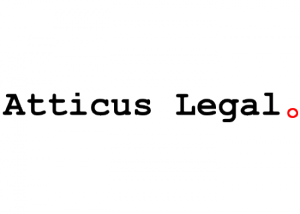COMPANY RECORDS AND REGISTERS – DIRECTORS’ OBLIGATIONS. By Atticus Legal, Company & Business Lawyers Hamilton
The Companies Act 1993 (the Act) sets out statutory record keeping requirements for all companies. A summary of the Act’s requirements for records and registers is set out below. Every director has the right to inspect these company records and registers and, in more limited circumstances, shareholders and the public also have the right to inspect. In some cases (eg. a change to the company constitution or a change of registered office) there are also obligations to file a notice at the Companies Office. These filing requirements are not dealt with below, but we can advise you on that if and when necessary.
There are also separate requirements for holding business and tax records under the Financial Reporting Act and tax legislation. They are not dealt with here. Your accountant will be able to advise you on those.
For most people it’s easier to have the company’s accountant keep the below-mentioned Companies Act records. And often they will have their accountant file the Annual Return at the Companies Office each year as well. But if that is the case we recommend that you ensure that the Companies Office has your current address and email on record (as a director or company administrator) so that you can be advised by the Companies Office if any such filing is overdue.
Company Records
Section 189 of the Act requires a company, and by extension the company directors, to keep the following company records at the registered office of the company in New Zealand (which is usually, but not always, the address of the company’s accountant):
Company Constitution
Where a company has a constitution a copy of it must be kept at the registered office, along with any changes to it.
Resolutions/Minutes of Directors & Shareholders
Minutes of all meetings of the board and meetings of the shareholders, and all resolutions passed, must be kept in a company minute book for at least 7 years.
Written Communications to Shareholders & Share Certificates (if any)
A company must retain a copy of all formal written communications to shareholders (eg. notices of general meetings) for at least 7 years. If the company issues share certificates (which is not common), copies of these must also be held.
Register of Directors
The register of directors records the names and addresses of all directors, and any changes.
Register of Directors’ Interests
Directors must disclose their interests, if any, in the company’s shares or share transactions and in any transaction or proposed transaction by the company, by describing that interest in the interests register.
Directors’ Certificates
The Act requires directors to keep and make available to shareholders a record of various ‘certifications’ where the directors certify that the requirements of the Act and the constitution have been complied with. Any dissenting directors should record their disagreement in respect of any particular proposal in the directors’ minutes (especially where a directors’ certificate is required by the Act). Directors’ certificates are required to record that certain procedures/criteria have been satisfied; for example, certifying that consideration payable for the issue of new shares is fair and reasonable, that the solvency test will be satisfied after a distribution and that financial assistance proposed to be given for the purchase of the company’s shares is fair and reasonable to the company and in the best interests of the company.
Share Register
The share register records the names and addresses of all shareholders over the last 10 years, and any changes, and the number of shares (and class of shares) held by each shareholder. Often, although not required, copies of all share transfers are kept by the company as well.
Financial Statements, Tax & Accounting Company Records
The company must keep copies of all financial statements and accounting records for at least 7 full accounting periods. The Financial Reporting Act sets out the applicable requirements for financial statements and related record keeping. There are also record-keeping requirements under the Income Tax Act and the Tax Administration Act. Your accountant can advise you on these.
It is important to note that the directors must keep accessible accounting and business records sufficient to reasonably enable them to determine the financial position of the company at any time and which accurately record the transactions, finances and business of the company from time to time.
Consequences of Failure to Keep the Required Company Records
Failure to maintain the required company records is an offence under the Act, for which fines can be imposed. But perhaps more importantly, depending on the circumstances, it can also lead to the directors becoming liable to the shareholders and/or creditors of the company.
WANT TO KNOW MORE ABOUT COMPANY RECORDS? Just ask Atticus Legal, Company & Business Lawyers Hamilton
CALL ANDREW SMITH, the owner of Atticus Legal, for expert professional advice on any of the matters referred to in this information sheet.
TO RECEIVE FURTHER INFORMATION SHEETS FROM ATTICUS LEGAL please ‘like us’ on Facebook to ensure you receive our future posts.
COMPANY LAWYERS HAMILTON NZ
11 Garden Place (Level 7), HAMILTON
Ph: (07) 839 4558, Fax: (07) 839 4559, Mob: 021 508 189
Email: andrew@atticuslegal.co.nz
SEE OUR WEBSITE: www.atticuslegal.co.nz
Disclaimer: The information contained in this information sheet is, of necessity, of a general nature only. It should not be relied upon without appropriate legal advice specific to your particular circumstances.
This information sheet is copyright © Atticus Legal, January 2016.



